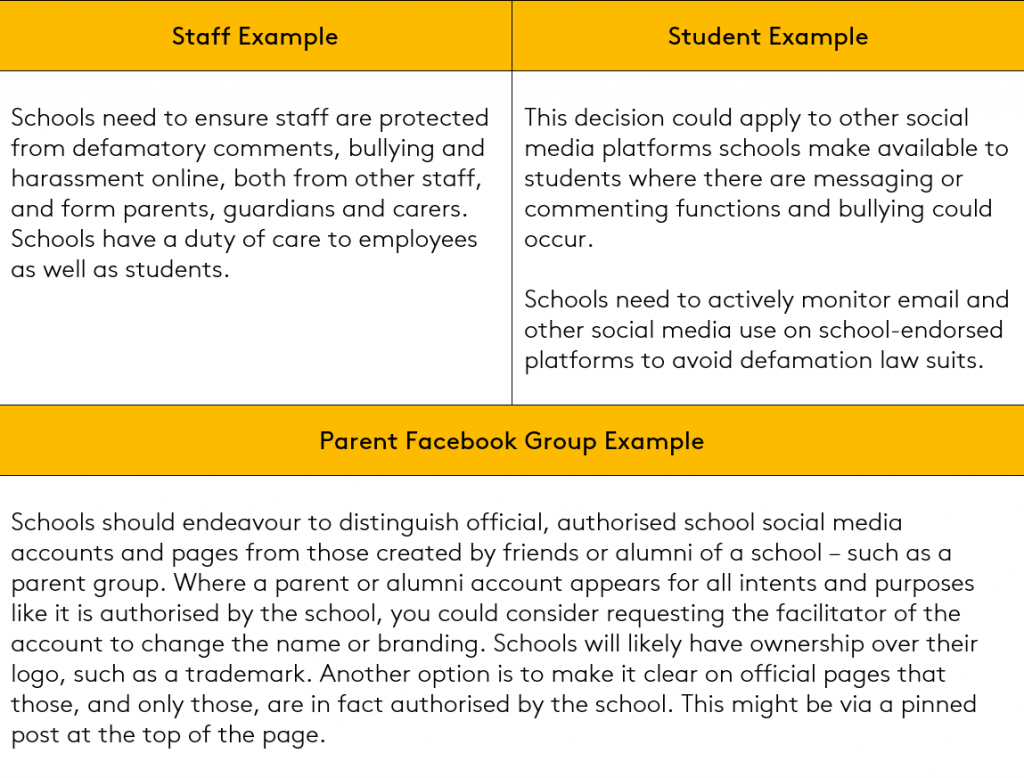In a recent High Court case – the Voller case[1] – the High Court affirmed that organisations can be liable in defamation law for comments made by a third party. This means schools need to closely monitor their social media accounts and take responsibility for the information that is shared via their platforms.
The media organisations had created a Facebook page, and posted content about Mr Voller. Members of the public (third parties, unrelated to the media organisations) had then commented and posted defamatory comments on that Facebook page. The High Court found that the organisations, by running the Facebook page, had facilitated and encouraged the defamatory comments, and were therefore legally responsible.
What does this mean for schools?
This decision highlights the risks in facilitating and encouraging the posting of comments by third-party users on webpages that an organisation controls. Simply allowing comments – or not removing them – may be seen as “facilitating and encouraging” the publication of those comments.

Other issues relating to social media use
There is an increasing scope of activity for which schools need to take responsibility as our world becomes increasingly digital.
Ministerial Order 870 considers the ‘school environment’ as any place made available to students by a school. This likely includes digital spaces. Social media blurs the line between home and school life, and means schools may need to take additional steps to ensure its students are safe and protected from risks presented in the online space, such as bullying or grooming.
Bullying online via social media can have significant impacts on students’ mental health. Also, moving digital for education by using social media and other software platforms can increase the risks of data breaches, causing harm to and interfering with the privacy of students and other community members.
If harm occurs via school platforms, like the Voller case, the school could also be liable for defamation.
How we can help
Our experienced education team can help you review Codes of Conduct to ensure online bullying or defamation is addressed in your acceptable standards of behaviour. We can also help with a Social Media Policy. It is important to ensure that enrolment documents and any grievance procedures link to codes of conduct and acceptable standards of behaviour so your school is empowered to take action.
We also offer duty of care training for schools specifically addressing social media and digital environments.
Please contact us for further assistance.
[1] Fairfax Media Publications Pty Ltd v Voller; Nationwide News Pty Limited v Voller; Australian News Channel Pty Ltd v Voller [2021] HCA 27.